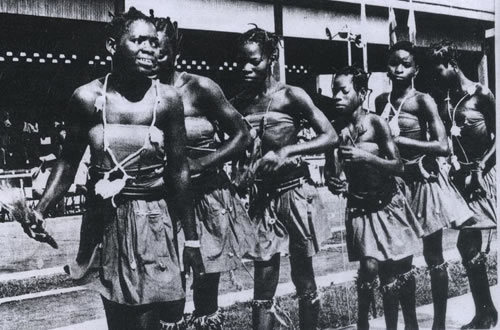The Origin Of Owan People
Except for lkao which claims Yoruba origin, all the people of Owan division migrated from Benin at various times. According to Chief (Dr.) Jacob U. Egharevba, Omorodion generally known as Odion by the people of Uwokha was one of the older sons of Oba Eweka I. He was next to his elder brother Omonuza (commonly known as Olomuza of Use). At the demise of Oba Eweka I, Omorodion’s bid to succeed his father (his elder brother Olomuza having been cast out because he polluted his father’s bed) failed. He and his family subsequently left Benin City in anger whereupon he founded Uwokha or Uwoha (Benin word for bush). This is a reminiscence of “I am going to find abode in the bush (Uwoha) rather than be called a Benin Prince. The name Uwoha has since been corrupted to Uwokha or Uokha.
The account contained in the Partridge’s report giving the reason of the Ivbiesakon’s migration during Oba Ozolua’s time is not really correct. It is not even correct to say that migration was even due to oppression or misrule of Oba Ozolua or because their ancestor committed adultery with one of his wives.

Agbeloje (dance for royalty) from Uzebba
As rightly Stated by Chief Egharevba, Oba Ozolua (as Prince Okpame) took refuge in Uokha when he was banished from Benin in 1473. It was from Uokha that Ozolua (as Prince Okpame) founded Ora whose people are o this day known as Ivbi-Ozolua or the “children of Ozolua”. Oba Ozolua also founded Uzebba. When Okpame left for Benin to become Oba Ozolua, he left one of his sons Oguan at Ora. The circumstances under which Omorodion (or Odio as called in that pan of the old Benin Empire) left home made him to reject the idea of returning to Benin and this by itself may have resulted in the loss of some of the old Benin chieftaincy titles but in the main, the primogeniture system remained. The coming of the Nupe Muslims and their invasion sounded the death knell of the Benin chieftaincy system in the area - hence the absence of similar Benin Chieftaincy names in this area. It was even said that the Oba of Agbede who was a newly converted Muslim actually and physically forbade the people of Owan (which came under his rule) from accepting and practising their traditional religion and cultural heritage. Although the subsequent war with the Idah people brought back the area under the full control of the Benin central administration once more during the reign of Oba Esigie (1504-1550) yet, most of the chieftaincy title system as known in Benin was lost. Perhaps what persists and is in consonance with the Benin governmental heritage is the Odionwere system which- is a Ieft-over of a typical Benin village or District administration without an Enogie or traditional hereditary rulership.
The whole of Owan is made up of eleven clans.
| Clan Name |
Headquarters |
Emai. |
Afuze |
Evboi-Mion |
Arokho |
Igue (lgwe) |
Igue |
Ihievbe (Sebe) |
Jhievbe |
lkao |
Ikao |
IHieha |
Uzebba |
Ivbi-Ada-Obi |
Warrake |
Ora |
Sabongidda (Evbiobe) |
Otuo |
Otuo |
Ozalla |
Ozalla |
Uokha |
Uokha |
The Major Traditional Rulers In Ika Land
1. The Oleje of Emai
2. The Ovie of Otuo
3. The Clan Head of lgwe
4. The Clan Head of Uokha
5. The Senior Village Head of Ivbi-Mion
6. The Senior Village Head of Ivbi-Ada-Obi
7. The Clan Head of luleha
8. The Clan Head of Ozalla
9. The Clan Head of Sebe
10.The Senior Odion-Urukpa of Ora
11. The Clan Head of Ikao